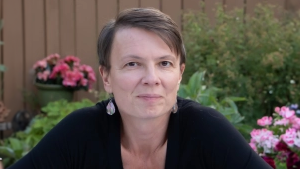LSLT - Julie Sedivy / Dispatches from the literary world

LSLT - Julie Sedivy / Dispatches from the literary world
Thursday April 3, psycholinguist and writer Julie Sedivy presents the Language Science Lunch Talk, abstracted below, on how to communicate science to the public, drawing lessons from literary writing.
As any language scientist knows, only a small portion of our cognitive processes is readily available for conscious introspection, limiting the scientific value of subjective experience. Nonetheless, drawing on my perspective as psycholinguist-turned-writer, I make a case for scientists according a significant role to subjective experience rather than sidelining it. Not all self-reports are of equal quality. I consider how literary writers (of both fiction and memoir) develop a discipline of rendering felt experience with precision and skepticism, and how similar habits of mind could be useful to scientists, contributing to creative and nuanced scientific work. I discuss how making room for subjective experience is a critical part of communicating science to the public in a way that promotes trust, and how scientists, rather than supplanting people’s experiences with empirical data, can strive to make people better experts of their own experiences. Finally, I suggest that maintaining a vibrant connection to their own experiences of doing science might help scientists build psychological resilience under the stresses of the current environment.

